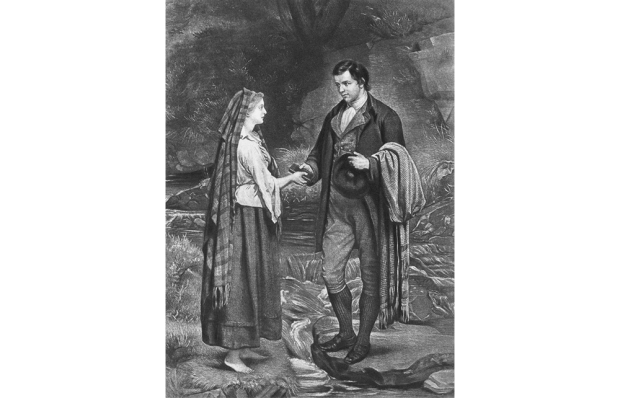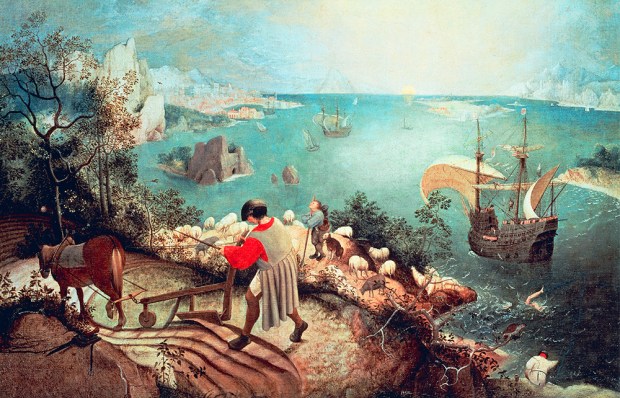In Competition No. 3190 you were invited to submit the first paragraph of your least favourite type of novel.
Sci-fi was the most well represented genre by a long way, with many thinking along similar lines. Here’s a flavour from Joe Houlihan:
Not for the first time, Drod Vordant was struck by the ethereal beauty of the Butterfly Nebula. Even at 178.4 light years distance the clouds of silicate and poly-aromatic-hydrocarbon dust that formed its wings occupied three quadrants of the ship’s astrodeck…
In a smart, funny entry, hardboiled–hater Robert Schechter stood out (‘The phone rang on my rented desk like the bell on the neck of an epileptic cow…’), as did excellent contributions from Alan Millard, Barry Baldwin, Nick MacKinnon and George Simmers. The winners take £25 each.
Looking back, Pedro Garcia Cicuendez could still remember those childhood years when he could fly. His mother’s house had been full of strange things, sieves, charangos, puppets, skewbald guinea pigs and extravagantly branched cacti, for everything in the world was new in those days, before the ghost men came. He was too solid for flight now, though once in a while, when he jumped one of his boss’s fences, he had to recall the propriety of coming back down to earth. At least he was not as earthbound as his sister, who years ago had fixed herself in a corner of the town square and now shaded men and llamas with her spreading branches. The townsfolk, of course, were not so indecent as to tether some ill-educated mule to her. Yet the stumps of his wings still chafed, beneath his solemn work clothes. He read the letter again.
Frank Upton
When the snow came, as the leaves had foretold, it fell at first as a scanty shower that shimmered and glimmered like the dust from an angel’s wings. Eyes large in wonder, the child asked: ‘Why does the whiteness vanish as it meets the ground?’ Iisgard gave smiling answer: ‘Be not deceived, child. The earth takes this early fall as its tithe. Then it will make a bed for the snow to lay its blanket on.’ ‘Are we to sleep then under the blanket?’ ‘ Think not of sleep, young one. Our journey stretches before us and the howl of our pursuers is ever at our back. The snow will cover our tracks but it will also obscure the way ahead. Thus, in like measure the gods both protect and daunt us. Muffle thy face, my child, and let us step onward. From this day stems our destiny.’
W.J. Webster
Ah wiz wi Tam an Murdo, all of us oaf us faces ain eight pints ae heavy in some Sauchiehall Street bar. We wiz all on the bru, mind, nary a pot tae pish in between the loat of us an arguin as tae whose fault it wiz: Scoatish politics, eh? Tam blamed the foakin English. I blamed the foakin Tories. Tam sez that isnae fair and when I sez how come, Tam says the foakin English are the foakin Tories an vicey-verser tae boot. Then Murdo sez, wha aboot the Tartan Tories? Tam looks tae the corner a the bar at some auld bastirt sat oan his ain an says, Him? The auld bastirt must ha bin lissenin, cos he says, Atchilly, lads, Ah’m a Scots Nat. Ma point ezackly, sez Murdo, and glasses the auld fella reet in the mush. It was goaen tae be a gid night.
Adrian Fry
In the grand old year 18__, about which so much is remembered, little of it with any accuracy, a dark black phaeton appeared at the end of the poplar-lined drive of Amblewell Hall’s estate in the northern county of Ossetshire. Two fine bay horses drew its four strong wheels, two large and two small, as it made its sedulous way from the lodge to the partly dilapidated mansion, seat of the third Marquess of Ludlow, lawfully begotten heir of the second Marquess, hero of Mykonos. There was little sign of life, unless it be the low and lazy curl of smoke arising from one of the cottages at the nether edge of the Amblewell demesne, wherein might be found, I fancy, his Lordship’s head gardener (although to invest him with such rank is folly, as he was in charge only of a young boy, the times being what they were).
Bill Greenwell
I was born in the Year of Our Lord 17— in the market town of B—t, within the diocese of Verulam, H—fordshire. My father, who —–, Reader, are you still there? If not, the fault is mine alone. I shall expound: why should you lose precious hours perusing a piece of — I use the term loosely — literature in which opening your narrator declares neither year nor place pertinent to the action. Common sense will ‘fill the blanks’ but that is the duty of the writer; else it were akin to selling one an ill-finished garment. You have laid out handsomely for this book; I have gulled you with mere threads and patches. In tales of espionage, mutiny or dynastic intrigue such stylistic deviousness were justifiable. My endeavours, I confess, have proven inferior to your expectations. Reader, I entreat you: abandon this text forthwith.
Mike Morrison
Among the assembled elite in the grand drawing room of Prince Nikolai was the popular young officer Akady Mikhaelovitch Astronopov. Count Fyodor Bogoslayev was there as was Konstantin Konstinovitch Gastrilev. They all watched as the old servant Grigor added logs to the fire, then shuffled out of the room.
‘The Russian muzhik,’ observed Gastrilev, ‘becomes a tsar when he sheds his blood on the battlefield.’
‘Hardly,’ said Vladimir Vasilivitch Malenkov. ‘A pawn is a pawn is a pawn.’
‘But a pawn becoming a queen outshines peer and prelate,’ Akady said with a grin.
Malenkov sneered. ‘No mouse has ever transformed into a lion.’
‘The old Roman Cincinnatus would surely prove you wrong.’
Everyone laughed, but Malenkov’s face was dark with anger. No one made him a laughing stock with impunity. Akady at that moment knew that a duel could not be far away.
Frank McDonald
No. 3193: Rhymes royal
You are invited to submit clerihews on members of the royal family, past or present. Email entries (up to three each) to lucy@spectator.co.uk by midday on 31 March.
Got something to add? Join the discussion and comment below.
Get 10 issues for just $10
Subscribe to The Spectator Australia today for the next 10 magazine issues, plus full online access, for just $10.
You might disagree with half of it, but you’ll enjoy reading all of it. Try your first month for free, then just $2 a week for the remainder of your first year.














Comments
Don't miss out
Join the conversation with other Spectator Australia readers. Subscribe to leave a comment.
SUBSCRIBEAlready a subscriber? Log in